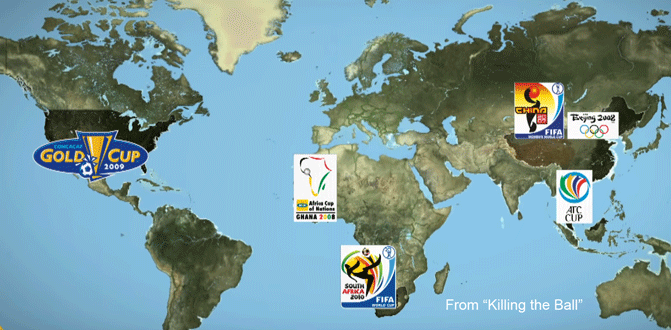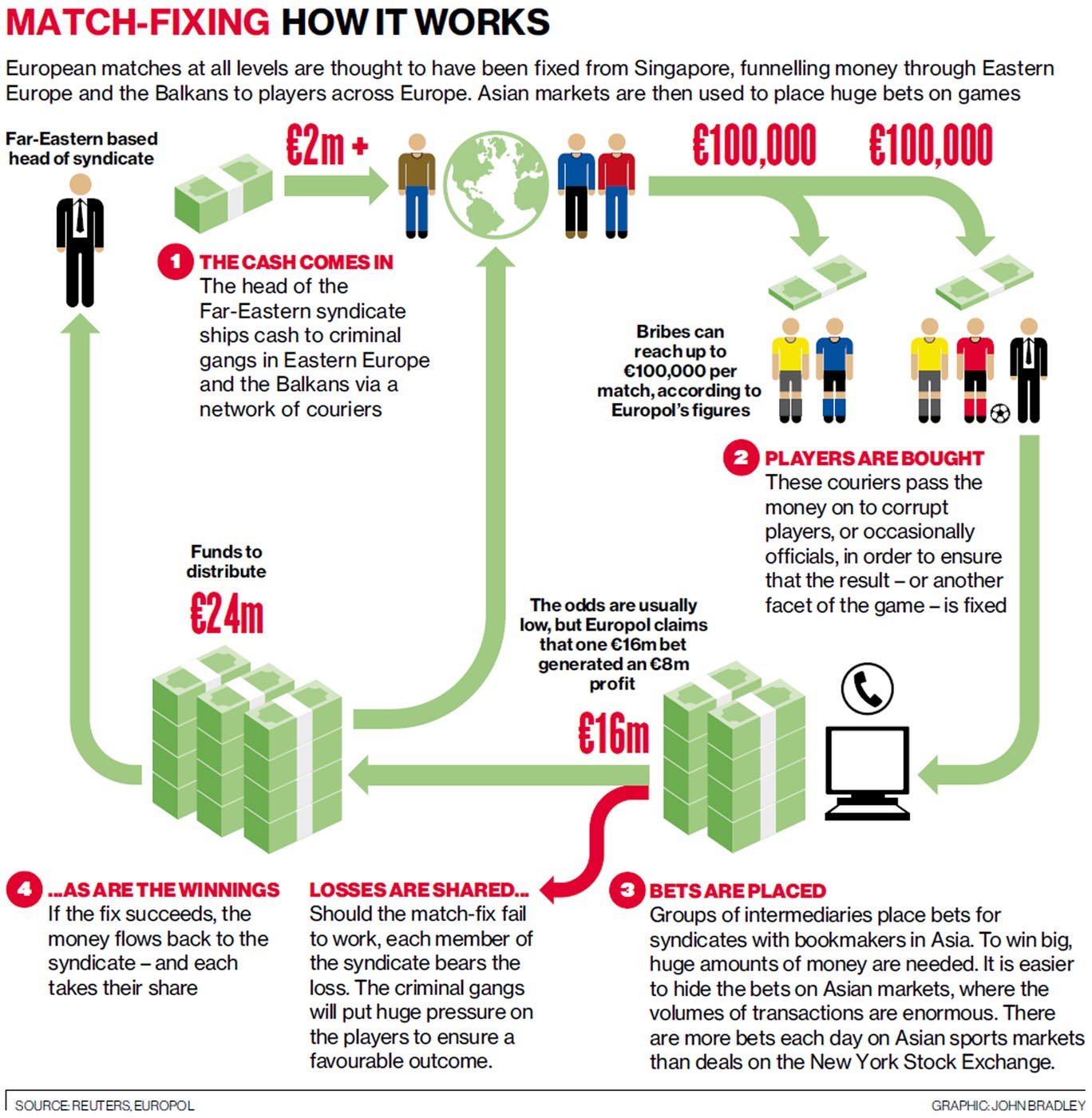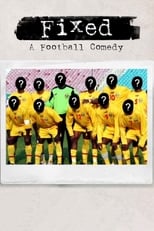Once you’ve served prison time for match fixing, what is the easiest way to keep making money? Claim yourself notorious, become a consultant, and get paid to give interviews about corruption in FIFA.
The story of match-fixer Wilson Raj Perumal first broke in 2010, when as a FIFA Match Agent, Perumal arranged an international friendly between Bahrain and a fake team from Togo. The resulting outrage brought the match-fixing to light.
To save himself, Perumal became a witness for the prosecution. Seeming to enjoy the limelight, by 2014, he had starred in myriad short documentaries and published his memoir, “Kelong Kings” (kelong is Malay for match-fixer).
I had learned about Singaporean match-fixing in the 2017 documentary Foul Play. So when I watched Fixed, a Football Comedy, a few questions came to mind. First of all, why is this film called a comedy? (It’s not.) And secondly, why tell this story again?
Answering the question
In this Dutch version of the fake Togo story, Director Karel van den Berg assembles the actual participants: the Togolese players, their coach Bana Tchanilé, the Austrians who were coaching Bahrain at the time, and match fixer Perumal.
Coach Bana insists he did it to help his players — free travel, free equipment, exposure, a national team cap, and $300 (equivalent to 10 months of pay). Bana is the only one arrested and imprisoned for the fraud. Even 10 years on, the players hide themselves in interviews because “They arrest those who tell the truth”.
Fixer Perumal insists he didn’t know the players would be “amateurs” unable to last in the Bahrain heat (Bahrain is next to Qatar). He fingers his associate Dan Tan as the kingpin financier and himself as the entrepreneurial businessman managing the relationships and the logistics. In the more interesting parts of the film, Perumal explains his process and the economics of match-fixing. For this match, he spent $60,000 and achieved a betting volume of 0.5 Million Euros.
As for the comedy part, some of the interviewees describe the game itself as hilarious. Maybe it is, in a twisted cynical sense of comedy. There are only a few moments of game highlights (or lowlights, depending on your perspective). To bolster the point, the filmmaker cuts away to British expat comedian Adam Fields, who recounts the story to his audience.
There are better alternatives to inform yourself on match-fixing
Perumal’s “Kelong Kings” memoir and guide to match-fixing was written with 2 Italian investigative journalists, Alessandro Righi and Emanuele Piano. The co-authors also did a 2015 episode for Al Jazeera TV, called Killing the Ball. That video includes this illustration of Perumal’s claim that his Singaporean company, Football 4 U, fixed matches at Gold Cup 2009, Africa Cup of Nations 2008, qualifying for South Africa’s WC 2010, ATC Cup, WWC 2007 in China, and the Beijing 2008 Olympics.

Their KelongKings website includes 4 CNN videos conducted by Don Riddell in 2014. He interviews Perumal and former FIFA investigator Terry Steans. I found the first 3 of these videos to be the most informative about match-fixing and the most revealing of Perumal. In the 4th video, Riddell interviews Right and Piano and ends with the two co-authors playing footie with Perumal. If you are really interested in this subject, you should watch Riddell’s videos before that website goes away.
Match-Fixing 101
I did not care much for the film Fixed, a Football Comedy. But if you watch it along with the video work of Don Riddell and the Kelong Kings authors, you will be able to put together the pieces of what makes everything work in match-fixing. Andrew Buncombe wrote a good 2013 article for The Independent that included this graphic

In the videos I watched, Perumal said he got into match-fixing because he wanted to win more bets, and his success rate was 75-80%. He claims to have won $5-6M but to have spent or gambled it all away. He is telling the stories that will sell, and he must aggrandize what he’s done.
I find Perumal personally difficult to believe, because it is clear that he is an excellent liar and manipulator. For example, Perumal tells the Dutch filmmaker that he prefers to approach Black people, because White people have principles. White people don’t want to lose matches. How untrue and manipulative is that?
In Conclusion
What we overlook is the people who get punished the most: the gambling addicts who are betting on a fixed game, and the players who get a tiny payoff of a phone or a few months wages. Young players are largely targeted, and once they take a bribe, that crime is used as blackmail to ensure future match fixes.
Even Ibrahim Chaibou, the Niger referee in the Togo-Bahrain match, seems to have barely suffered. It took 8 years for FIFA to finally ban him for life.
One good outcome of the incident is that FIFA stopped allowing Match Agents to bring their own referees to an international friendly. But I’m sure anyone who studies these videos may find other loopholes to start a new career in FIFA corruption.
6 Soccer Movie Mom Rating = 6
Resources:
- Released: 2020-09-28 (Netherlands TV)
- In English and French with English sub-titles
- 50 minutes
- I watched this on Amazon, where it is titled Fixed!
- IMDB
- Director: Karel van den Berg
- Stars: Wilson Raj Perumal , Bana Tchanilé
- Watch the Trailer
- Website
- Kelong Kings book website

